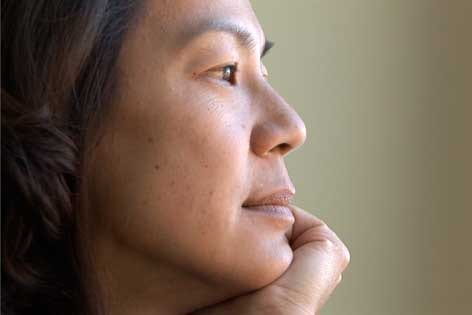UCI professor edits book offering solution to Israeli-Palestinian conflict
Mark LeVine, professor of history at UC Irvine, has edited a book proposing an entirely new, out-of-the-box approach to resolving the ongoing Israeli-Palestinian conflict. One Land, Two States: Israel & Palestine as Parallel States (University of California Press) features almost a dozen leading scholars, policymakers and activists from Israel, Palestine, Europe and the U.S. exploring the idea of “parallel,” or shared, sovereignty. This concept reconceives the connection between statehood and sovereignty so that the latter is no longer tied directly to exclusive control over territory and instead is based on the individual relationship between the state and citizens. In this manner, rather than fighting over the borders of two adjacent states in the tiny space of Israel and Palestine, Jews and Palestinian Arabs would live in overlapping, or parallel, states, each covering the entirety of the territory of Mandatory Palestine/Eretz Yisrael.
“As the carnage in Gaza continues, perhaps the biggest casualty – after all the needless deaths and destruction – has been clear and original thinking about new ways to solve this seemingly intractable conflict,” LeVine said. “Yet in the midst of interminable negotiations, violence and ongoing settlements over the last half-decade, a team of senior Israeli, Palestinian and international scholars has been working on an innovative approach to resolving the conflict.”
The book is co-edited by retired Swedish Ambassador Mathias Mossberg, one of the founding figures of the Oslo peace process. LeVine is the author or editor of half a dozen books on the history and present-day realities of the conflict and is a senior columnist at Al-Jazeera English.
What makes the idea presented in the book so important, he noted, is that it 1) allows all settlements to remain in place; 2) permits Palestinians to return to all of their historical homeland; 3) lets Jerusalem be “shared,” since both communities claim it as their capital; and 4) provides maximum incentive for joint security and economic cooperation. The book’s contributors argue that this plan is, quite simply, the only two-state solution left.
The book can be viewed at http://www.ucpress.edu/book.php?isbn=9780520279131. A PDF is available for immediate use by bookers, producers and on-air hosts.
To contact LeVine, call 949-394-7772 or email mlevine@uci.edu.
Additional contact: Laura Rico, 949-824-9055, lrico@uci.edu
Media access: UC Irvine maintains an online directory of faculty available as experts to the media at communications.uci.edu/for-journalists/experts/. Radio programs/stations may, for a fee, use an on-campus ISDN line to interview UC Irvine faculty and experts, subject to availability and university approval. For more UC Irvine news, visit wp.communications.uci.edu. Additional resources for journalists may be found at communications.uci.edu/for-journalists.
UCI’s expert alerts and tip sheets inform the media that a faculty member is available to provide insight, background or perspective on an event or news feature. The expert opinions and perspectives of UCI faculty members are solely their own and represent neither the opinion nor the position of the university.

